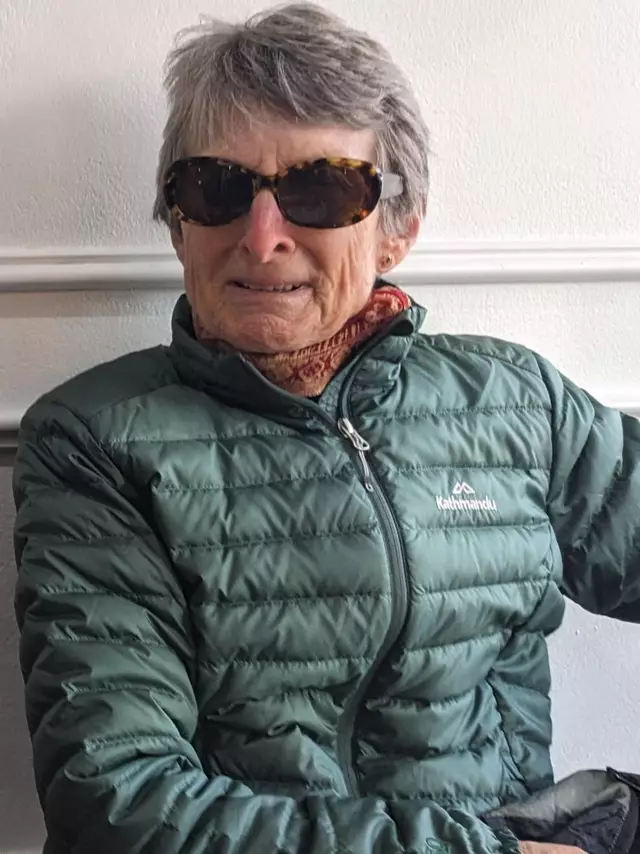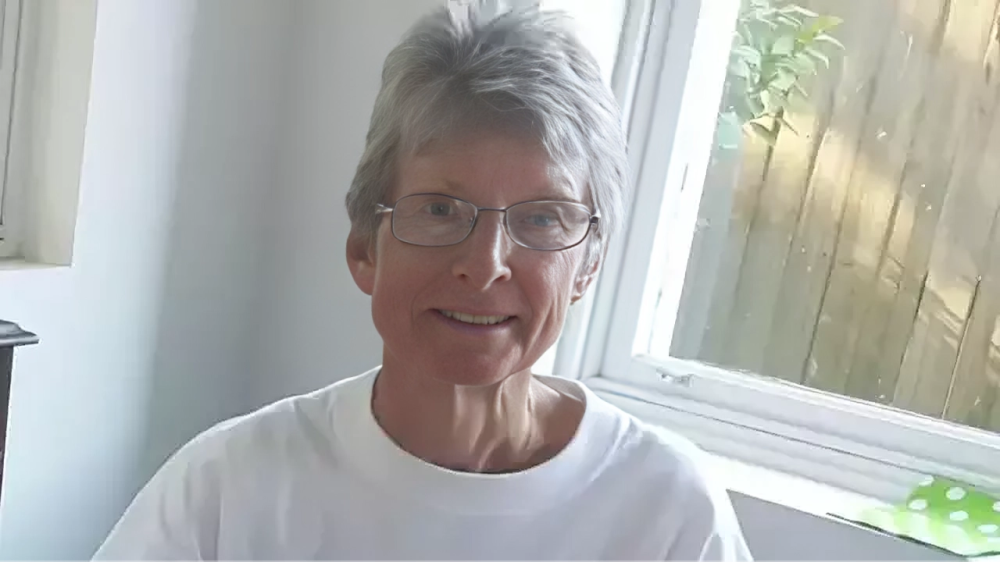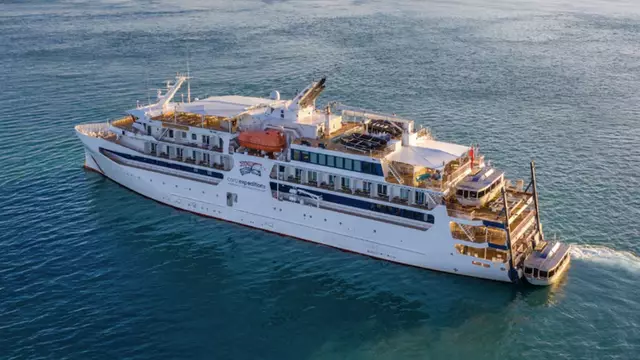Family demands answers after 80-year-old left behind during luxury voyage off Australia’s coast
An Australian family is demanding answers after an 80-year-old woman was found dead on a remote island off the Great Barrier Reef, in what authorities are calling a “sudden and non-suspicious” death. The incident has prompted renewed scrutiny of cruise line safety protocols and passenger accountability.
The woman, Suzanne Rees of New South Wales, was discovered on Lizard Island, a secluded national park roughly 270 kilometers north of Cairns, on Sunday, October 26. According to Queensland Police, her body was located during an overnight search that began after her cruise ship, the Coral Adventurer, left the area without her.

A Costly Voyage Turns Tragic
Rees had joined the Coral Adventurer as part of a 60-day circumnavigation cruise around Australia, a luxury journey that costs roughly $52,000 (AUD) per passenger. The vessel, operated by Coral Expeditions, had made its first scheduled stop at Lizard Island on Saturday, October 25, allowing guests to hike and explore before reboarding.
Authorities believe Rees became unwell during the excursion and was asked to return to the shore unescorted, while the rest of the group continued on the hill climb. Sometime afterward, the ship departed — apparently without realizing one of its passengers was missing.
Her daughter, Katherine Rees, expressed disbelief that her mother could have been left behind without anyone noticing.
“From the little we have been told, it seems that there was a failure of care and common sense,” Katherine told The Australian. “We understand from police it was a very hot day, and Mum fell ill on the hill climb. She was asked to head down, unescorted. Then the ship left, apparently without doing a passenger count.”
“At some stage in that sequence, or shortly after, Mum died, alone. I hope the coronial inquiry finds out what the company should have done that might have saved Mum’s life.”
A Search That Came Too Late
Queensland Police said the alarm was raised around 10 p.m. local time on Saturday when Coral Adventurer’s crew realized a passenger was unaccounted for. The ship contacted the Australian Maritime Safety Authority’s (AMSA) emergency coordination center in Canberra, triggering a joint land and sea search.
A rescue helicopter was deployed at approximately 12:45 a.m. Sunday, but by then, it was too late. Rees’ body was found later that day on Lizard Island.
Officials have since confirmed the death is being treated as non-suspicious, though a coronial inquiry will determine the exact cause and whether any operational failures contributed to her being left behind.
An AMSA spokesperson said investigators are assessing whether proper passenger counts and boarding checks were performed before the vessel departed.
“We are currently investigating the circumstances surrounding why the passenger may not have been accounted for during boarding,” the spokesman said. “If any non-compliance is identified, appropriate action will be taken.”
Cruise Line Responds
Mark Fifield, Chief Executive Officer of Coral Expeditions, issued a statement expressing condolences to the Rees family and confirming that the company was cooperating fully with authorities.
“On Saturday, 25 October, the crew notified authorities that a woman was missing, and a search and rescue operation was launched on land and sea,” Fifield said. “Following the operation, Coral Expeditions was notified by Queensland police that the woman had been found deceased on Lizard Island.”
“We are deeply sorry that this has occurred and are offering our full support to the woman’s family,” he added. “The Coral team has been in contact with the family, and we will continue to offer assistance through this difficult process.”
The company declined to answer detailed questions about its passenger safety procedures or whether the crew performed a mandatory headcount before the ship left port, citing the ongoing investigation.
A Pattern of Questions About Cruise Accountability
The case has reignited concerns about passenger monitoring and safety practices across the global cruise industry, which typically relies on manual counts, check-in lists, or digital ID scans when guests disembark during excursions.
Former cruise officers told Australian media that headcounts are standard practice, but human error or communication breakdowns can sometimes result in missed passengers.
“In any properly run operation, a ship should not depart without verifying all passengers are accounted for,” one former maritime officer told ABC News. “If someone isn’t checked in, you stop everything until you find out why.”
Coral Expeditions, a small Australian operator known for “expedition-style” cruises, markets its voyages as immersive experiences for older travelers seeking access to remote coastal regions. The Coral Adventurer carries about 120 passengers and 42 crew members, significantly fewer than mainstream cruise liners, allowing for closer interaction but also greater reliance on staff attentiveness.
A Daughter’s Call for Accountability
In her statement, Katherine Rees said her mother had been healthy and active for her age and had looked forward to the cruise for months. She described her as “independent and full of life”, but added that she should never have been left alone on a hot, isolated island.
“Even if she wanted to keep walking, someone should have stayed with her,” she said. “It’s hard to understand how, in this day and age, a passenger can go missing without the ship realizing it until hours later.”
The family has called for the coronial inquest to examine whether Coral Expeditions followed all required safety protocols, including passenger supervision during shore excursions and headcount verification before departure.
Queensland Police confirmed they are working with maritime authorities to establish a detailed timeline of events.
“At this stage, the death is not being treated as suspicious,” a police spokesperson said. “However, a report will be prepared for the coroner, and we will continue to assist other agencies in reviewing the cruise operator’s procedures.”
Inside Lizard Island: A Remote and Rugged Setting
Lizard Island, part of a protected national park within the Great Barrier Reef, is accessible only by small aircraft or private vessel. With its steep walking trails and limited shade, the island can be physically demanding — particularly during the hot and humid spring months.
Local guides familiar with the area said temperatures on the day of the incident reached above 90°F (32°C), and dehydration can set in quickly for anyone exerting themselves outdoors.
Search teams faced additional challenges navigating the island’s rugged terrain, dense vegetation, and limited radio communication. The discovery of Rees’ body near one of the main trails suggests she may have tried to return to the shore but became overcome by the heat.
Broader Implications for the Industry
The incident has prompted discussions within Australia’s maritime community about strengthening passenger safety checks for small-scale cruise operations.
Unlike major international cruise lines, smaller expedition ships often operate under domestic maritime regulations, which may differ in record-keeping and safety oversight requirements.
Consumer advocates have argued that the tragedy exposes gaps in accountability.
“No one should be left behind — period,” said a spokesperson for the Australian Passenger Safety Council. “This tragedy underscores the need for tighter procedures and independent audits of cruise headcount systems, particularly for smaller vessels.”
Ongoing Investigation
As of Thursday, both Queensland Police and AMSA said their inquiries remain open. The Coral Adventurer has continued its voyage, though it is unclear whether additional safety measures have been implemented onboard.
The coroner’s report, expected in the coming months, will determine whether negligence or oversight contributed to Rees’ death and could lead to recommendations for industry-wide reforms.
For the Rees family, the focus remains on ensuring that what happened on Lizard Island is not repeated.
“We just want the truth,” Katherine said. “If procedures failed, someone needs to fix them. No family should have to go through what we are going through right now.”

Sarah Mitchell is a bestselling novelist recognized for her insightful and emotionally resonant stories that explore the complexities of human relationships. Originally from Denver, Colorado, Sarah grew up in a family of teachers who nurtured her curiosity and love for storytelling. She studied psychology at Stanford University, where she became fascinated by the intricacies of human behavior—an interest that would later shape her writing career. Sarah’s novels are praised for their nuanced characters, intricate plots, and ability to capture the subtle tensions that define love, friendship, and family ties. Her breakthrough novel, The Spaces Between Us, became an instant bestseller, lauded for its honest portrayal of strained family relationships and the fragile bonds that hold people together. Since then, she has published several works that continue to captivate audiences around the world. Outside of her writing career, Sarah is passionate about mental health advocacy and often partners with organizations to promote awareness and support for those struggling with emotional well-being. Her personal life is quieter—she enjoys hiking in the Colorado mountains, practicing yoga, and spending time with close friends. With each new book, Sarah Mitchell cements her reputation as a writer who illuminates the beauty and struggles of human connection.










